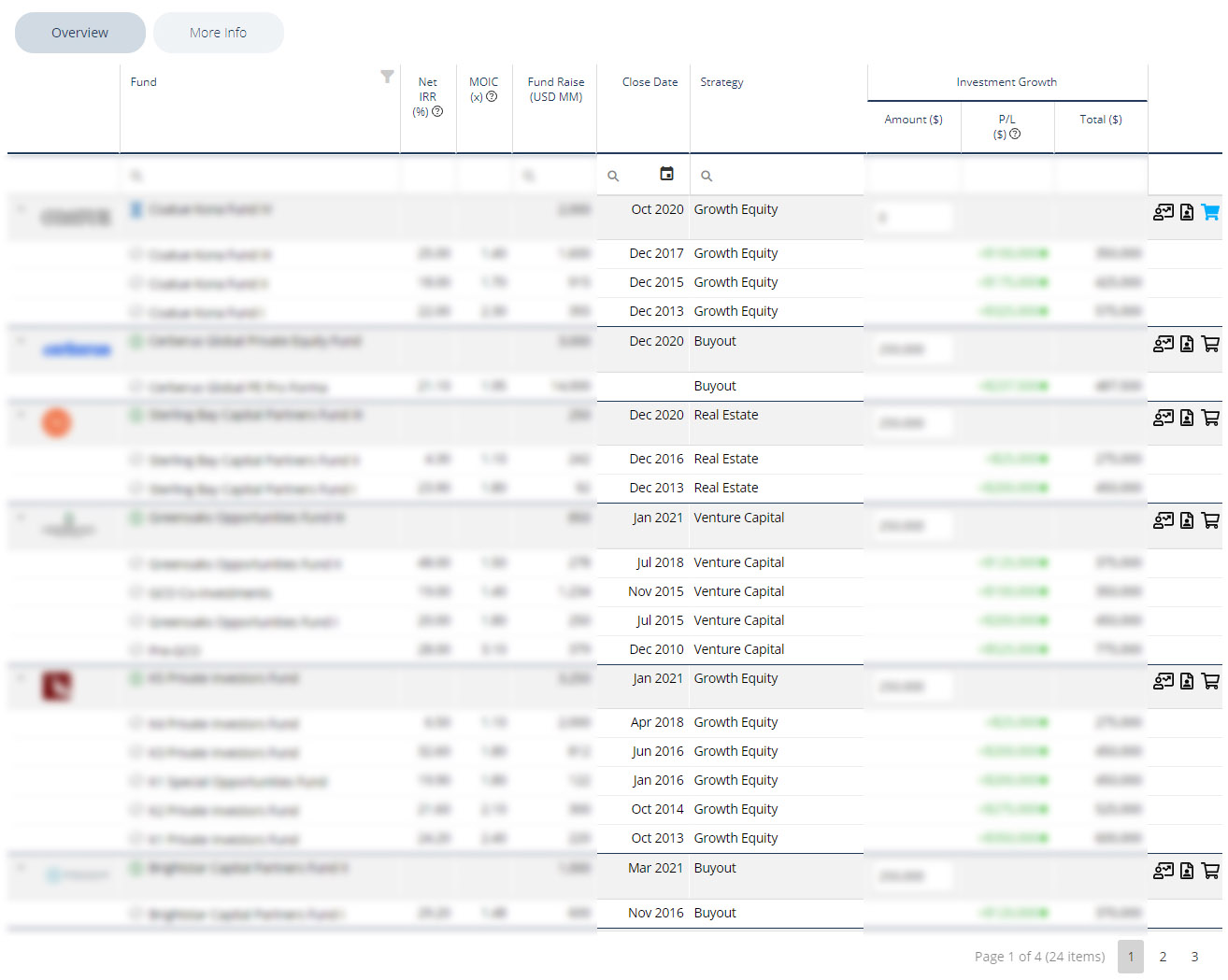Private equity funds are liquidity pools of capital to be invested in business that represent a chance for a high rate of return. They include a set investment horizonRoi (ROI), typically ranging from 4 to seven years, at which point the PE firm intends to beneficially leave the investment.
2. Buyout or Leveraged Buyout (LBO)Contrary to VC funds, leveraged buyout funds invest in more mature businesses, generally taking a controlling interest. LBOLeveraged Buyout (LBO) funds use extensive quantities of take advantage of to enhance the rate of return. Buyout discovers tend to be significantly larger in size than VC funds. Exit Considerations, There are multiple consider play that impact the exit method of a private equity fund.
Private Equity For Private Investors – Eurekahedge
In terms of a wholesale exit from business, there can be a trade sale to another buyer, LBO by another private equity firm, or a share repurchase. In terms of a partial exit, there could be a personal placement, where another investor purchases a piece of business. Tysdal’s Biography Another possibility is corporate restructuring, where external investors get included and increase their position in business by partially obtaining the private equity company`s stake.
To keep learning and advancing your profession, the list below resources will be handy:.
The Strategic Secret Of Private Equity – Harvard Business …
Looking into your household history with Ancestry!.?.!? PE-backed. However what exactly is private equity? A foundational concept for anybody interested in discovering aboutor working in a market tangential tothe personal markets, this blog site breaks down the basics of PE. What is private equity? Private equity (PE) is a type of financing where cash, or capital, is invested into a business.

PE is a major subset of a larger, more intricate piece of the financial landscape called the private markets. Private equity is an alternative asset class along with real estate, equity capital, distressed securities and more. Alternative property classes are thought about less traditional equity financial investments, which suggests they are not as easily accessed as stocks and bonds in the general public markets.
Private Equity Flashcards – Quizlet
What is a private equity fund? To purchase a company, private equity financiers raise liquidity pools of capital from minimal partners to form a fundalso referred to as a private equity fund. Once they`ve hit their fundraising goal, they close the fund and invest that capital into appealing business. Both private equity funds and hedge funds are restricted to recognized financiers.
And shared funds are only enabled to collect management charges, whereas PE funds can collect efficiency fees, which is gone over more listed below. How do private equity firms generate income? PE funds gather both management and performance charges. These can differ from fund to fund, however the. Computed as a percentage of possessions under management or AUM, typically around 2%.
Exclusive Warburg Pincus Seeks $16 Billion For Private …


Calculated as a percentage of the benefit from investing, typically around 20%. These charges are intended to incentivize higher returns and are paid out to workers to reward their success. How does private equity work? To purchase a company, private equity financiers raise pools of capital from minimal partners to form the fund.
When a PE firm offers one of its portfolio companies to another business or investor, the company usually earns a profit and distributes go back to the minimal partners that bought its fund. Some private equity-backed companies may likewise go public. What are some examples of private equity companies? The Blackstone Group Headquartered in New York, the financial investment firm invests in PE, real estate and more.
Private Equity: Definition, Firms, Funds, Effect – The Balance
So, VC is a type of private equity. Here are some extra distinctions in between PE and VC. Private equity PE firms frequently purchase fully grown businesses in traditional markets. Utilizing capital devoted from LPs, PE investors purchase appealing companiestypically taking a majority stake (> 50%). When a PE firm sells among its portfolio business to another company or investor, returns are distributed to the PE financiers and to the LPs.
Equity capital VC companies typically buy tech-focused start-ups and other young companies in their seed. Using committed capital, VC investors normally take a minority stake